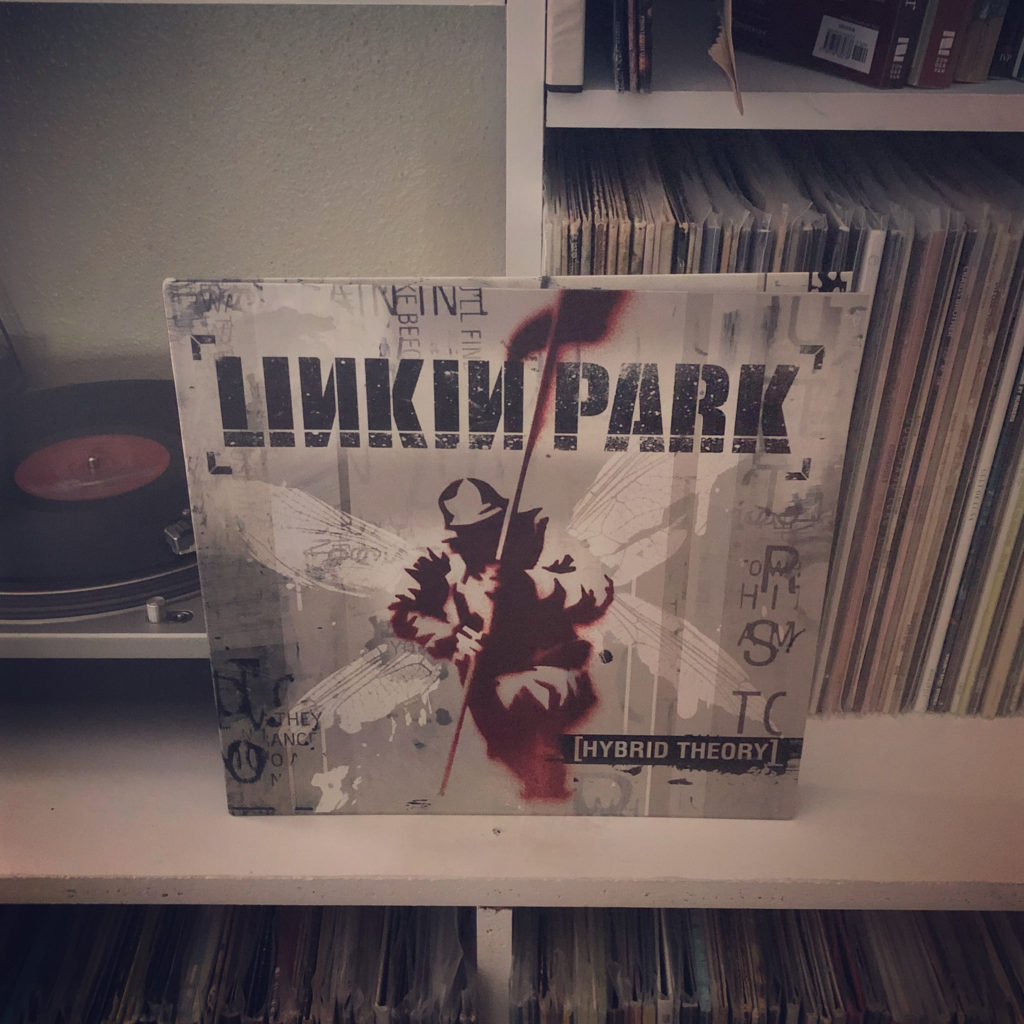 Let’s set the scene.
Let’s set the scene.
It’s the year 2000. I’m a thirteen-year-old kid. I’ve just started to get into music, mostly through pop punk and ska. But at the same time, I’m coming to grips with how heavy the world can be.
Then, on a Thanksgiving trip to California, I stumbled upon Hybrid Theory by Linkin Park.
I had never heard of them, but the cover instantly grabbed me. And when I flipped the disc over, I was struck to my soul.
The band photo resonated with me. Chester Bennington was dressed like I was. Mike Shinoda had my haircut (although mine wasn’t red—I tried that later). I saw a group of people that understood me.
And when I listened to it, I was even more convinced.
As the lyrics delved into broken trust, feelings of abandonment, and abuse, I found myself there. At the time, I had been processing through the realization that my father and I had kind of a shitty relationship, actually. I had finally realized for the first time that the way I had been treated was not normal—it was abuse.
I didn’t have an outlet for that anger. I withdrew from my family and distracted myself with video games. I lashed out at my sisters. At one point, I raised my hand to my mom (who put me on the floor with terrifying swiftness).
But across Hybrid Theory, I saw glimpses of someone who actually understood that pain. Every line felt like it was written by someone who had lived my life before me.
For the first time, I felt like someone understood me.
I didn’t take off my headphones for the rest of the vacation. The CD lived in my Discman for months. I memorized every word, every beat, every guitar tone.
Even years later, this record is just as powerful. And not just because of the sentiment attached to it (full disclosure: I have paused a few times to cry while writing this).
Musically, this record is astounding. It’s dated, certainly. But Linkin Park displays an absolute mastery of tone and atmosphere that few are able to achieve. For all of the nu-metal riffage, there are some stunning atmospheres here.
In fact, a few years ago, I tried to revisit this record ironically, and I was literally embarrassed by how deep my reaction to the record still was. In the months that followed, I accepted its place in my heart without shame, and even defended the record as on a few occasions.
It’s just sad that it took the tragic passing of Chester Bennington for everyone to allow themselves to realize how much they love this record. But as long as we can all embrace it for the masterpiece it is, I’ll accept that.